Goaltide Daily Current Affairs 2024
Current Affair 1:
Multiple independently targetable re-entry vehicle (MIRV) technology
On March 11, Prime Minister Narendra Modi announced on social media the successful flight test of an Agni V ballistic missile with multiple independently targetable re-entry vehicle (MIRV) technology by the Defence Research and Development Organisation (DRDO) under ‘Mission Divyastra’.
The successful launch of Mission Divyastra is a significant step towards India’s strategic punitive capability because this was the first flight test of indigenously developed 6,000 km range nuclear missile.
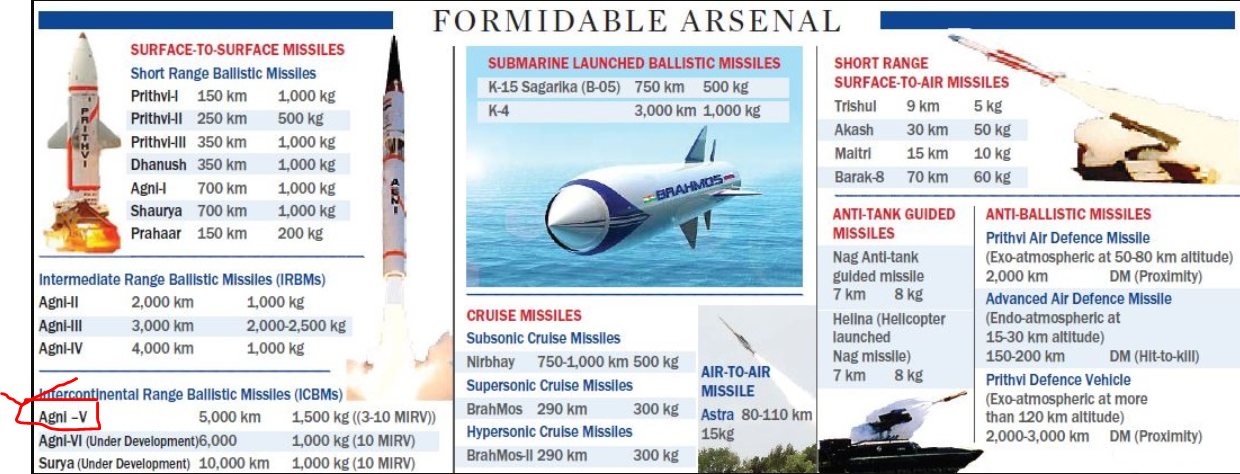
A single missile by India can deploy multiple war heads at different locations or at the same location with a time gap.
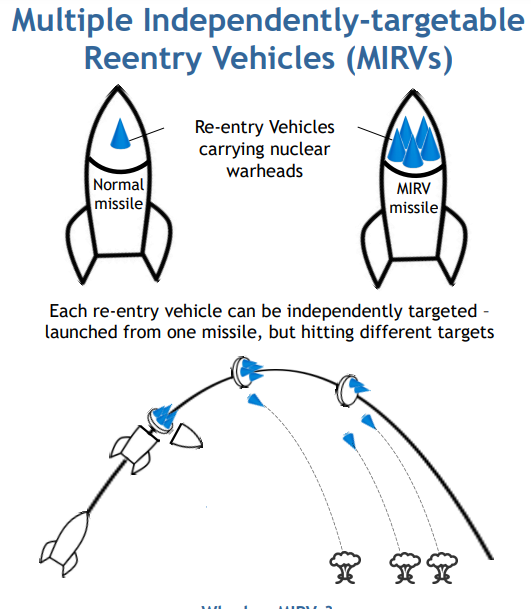
With the test of Mission Divyastra, India has joined the select group of nations who have MIRV capability
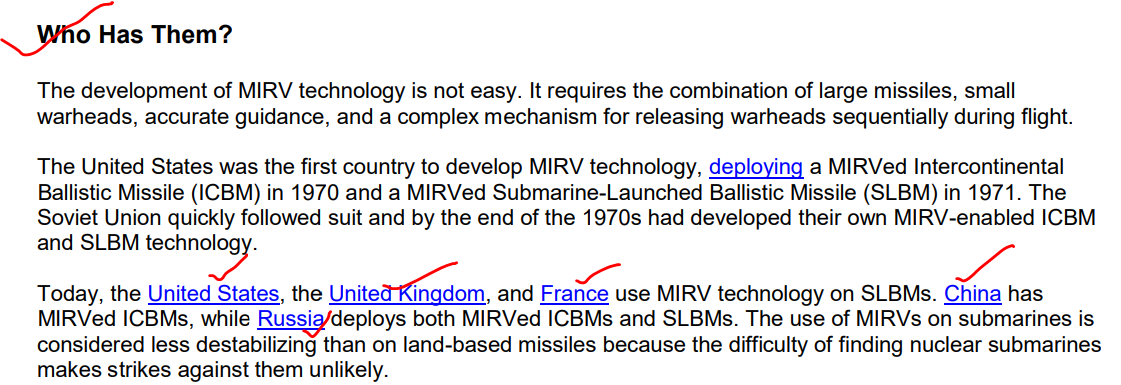
Current Affair 2:
Uniform Code of Pharmaceutical Marketing Practices (UCPMP) 2024
News:


Key highlights:
- Engagement of the pharmaceutical industry with healthcare professionals for Continuing Medical Education (CME) should only be allowed through a well-defined, transparent, and verifiable set of guidelines, and conduct of such events in foreign locations is prohibited by the uniform code.
- Companies or their representatives should not pay cash or monetary grants to any healthcare professional or their family members (both immediate and extended) under any pretext.
- Gifting is prohibited by any pharmaceutical company or its agent, that is, distributors, wholesalers, retailers, etc.
- The latest UCPMP also notes that paid travel, hotel stays, etc., should not be extended to healthcare professionals or their family members by pharmaceutical companies or their representatives, unless the person is a speaker for a CME, etc.
- On drugs, the UCPMP states that promotion of a drug must be consistent with the terms of its marketing approval, and
- a drug must not be promoted prior to the receipt of its marketing approval from the competent authority, authorizing its sale or distribution.
Current Affair 3:
India Remains World’s Largest Arms Importer: SIPRI Report
Just remember the key points.
The volume of international transfers of major arms in 2019–23 was 3.3 per cent lower than in 2014–18 and 3.3 per cent higher than in 2009–13.
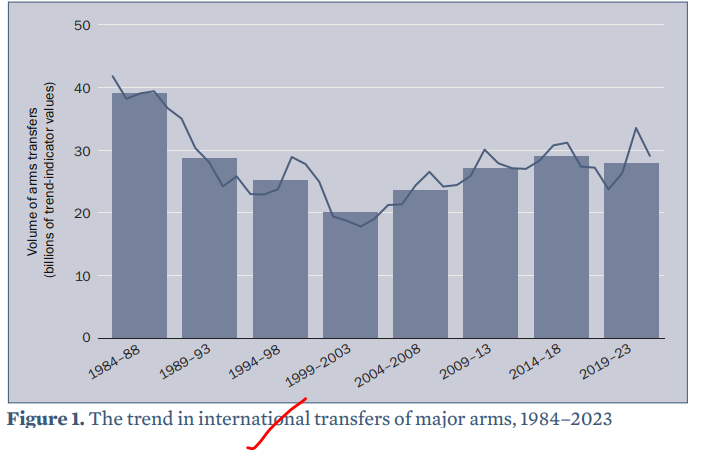
The five largest exporters were the United States, France, Russia, China and Germany.
Arms exports by the USA went up by 17 per cent between 2014–18 and 2019–23, while those by Russia went down by 53 per cent. France’s exports rose by 47 per cent and it moved just ahead of Russia to become the world’s second largest arms exporter.
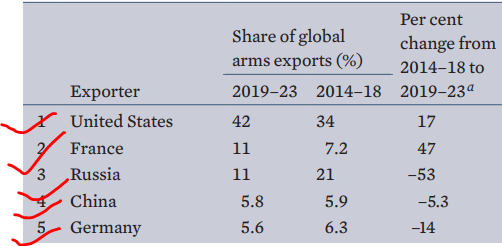
The five largest arms importers in 2019–23 were India, Saudi Arabia, Qatar, Ukraine, and Pakistan.
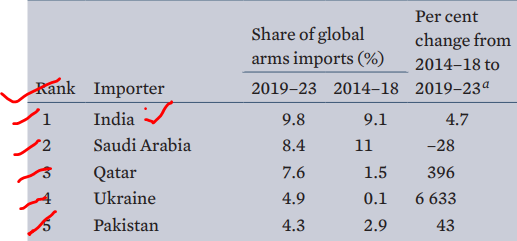
States in Asia and Oceania accounted for 37 per cent of all arms imports in 2019–23, followed by states in the Middle East (30 per cent), Europe (21 per cent), the Americas (5.7 per cent) and Africa (4.3 per cent).
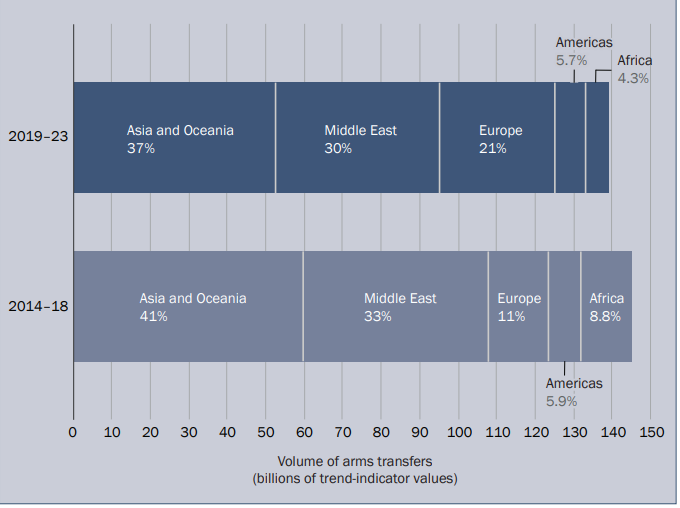
The largest importer in Europe was Ukraine, which received 23 per cent of the region’s total arms imports in 2019–23.

India was the largest recipients of arms of the following countries:

The top three countries from which India imports:

Current Affair 4:
Centre notifies rules allowing transfer of ‘captive’ elephants
News:

The Centre has notified a set of rules called the Captive Elephant (Transfer or Transport) Rules, 2024 that liberalize the conditions under which elephants may be transferred within or between states.
As per the new rules:

No transfer of an elephant shall be permissible unless genetic profile of the elephant has been entered in the electronic monitoring application of the Ministry of Environment, Forest and Climate Change.
The transfer of the elephant shall be effected within a period not exceeding three months from the date of grant of permission.
What are the conditions for the transport?

As per the new rules, now:
Earlier rules required that an elephant being transferred from say, Assam to Gujarat would need permissions from the Chief Wildlife Wardens of every State that the elephant would pass through in the process of being ferried by road. Now only the originating and recipient States’ permissions are required.
There is also provision of appeal:

Conclusion:
Elephants are, according to the provisions of the Wildlife Protection Act, a Schedule 1 species and therefore, be it wild or captive, cannot be captured or traded under any circumstances. Section 12 of the Act allows Schedule I animals to be translocated for ‘special purposes’ such as education and scientific research.
Until August 2022, the Wildlife Protection Act explicitly prohibited the trade in wildlife including both wild and captive elephants. However, amendments to the Act brought in an exemption that for the first time allowed captive elephants to be transferred.
<< Previous Next >>



